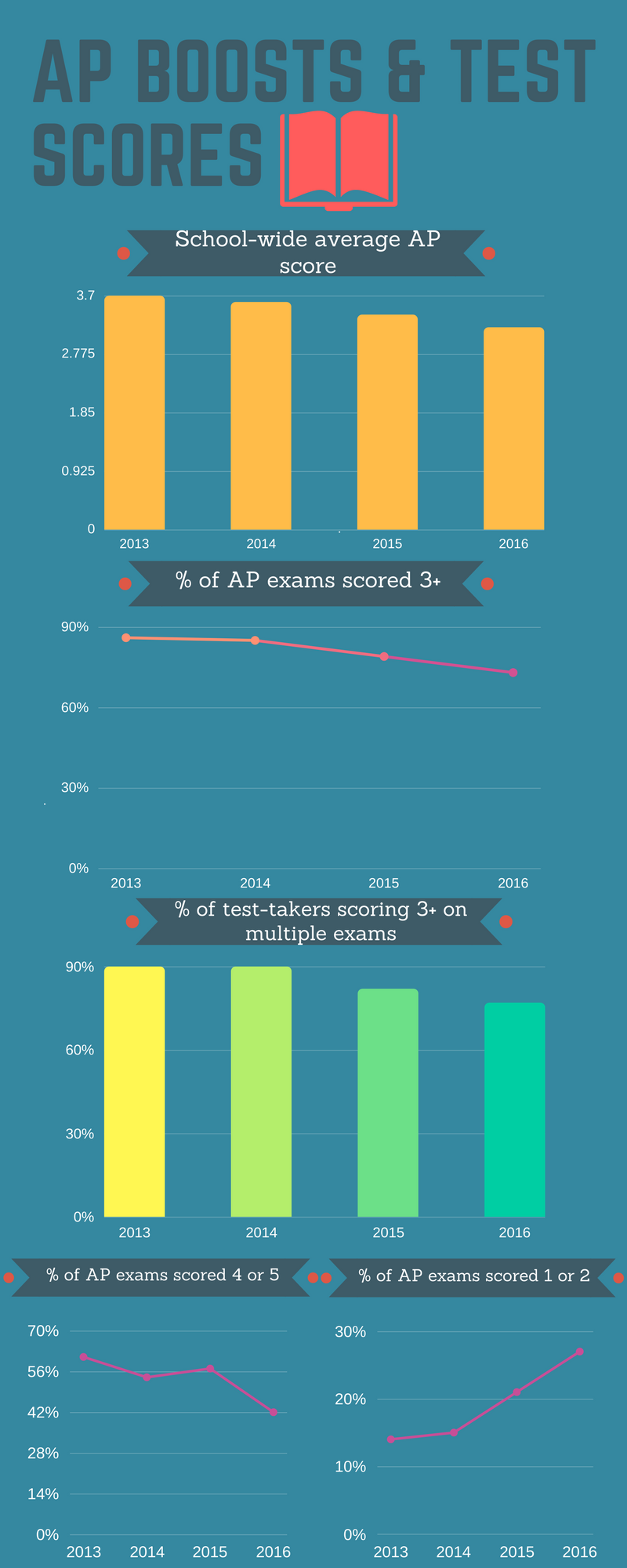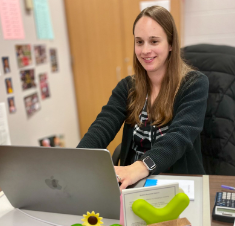AP review sessions ‘boost’ students to finish line
AP boosts are offered for students throughout the third trimester to prepare for the upcoming AP exams. Photo used with permission by Britannica ImageQuest.
‘The trimester system, implemented at Homestead during the 2012-2013 school year, provides many benefits to students, such as more slots for classes and more time to focus on individual classes. However, there is one flaw: second trimester ends in March, but AP tests are not until May. Initially, this six week gap concerned many students and parents in relation to test scores.
To remedy this problem, teachers hold a number of boost sessions leading up to the test to review material with students. When trimesters were first adopted, attendance at these boost sessions was very high, in turn showing a correlation with high tests scores.
In 2013, the first year boost sessions were implemented, the school-wide average test score was a 3.7 out of 5 (3 is a passing score), and 86% of the AP exams scored a 3 or higher. In addition, 90% of test-takers scored a 3 or higher on multiple tests, 61% of AP exams scored a 4 or 5 and only 14% of AP exams scored a 1 or 2.
Ever since then, attendance at boost sessions has progressively declined which has overall impacted average scores. In this past year of AP tests, the school-wide average test score was a 3.2, and 73% of the AP exams scored a 3 or higher. Additionally, 77% of test-takers scored a 3 or higher on multiple exams, 42% of AP exams scored a 4 or 5 and 27% of AP exams scored a 1 or 2.
Attending boost sessions certainly produces higher scores.
This is why AP teachers strongly encourage them, especially towards the end of the second trimester. Mrs. Dawn Pfaff, AP Environmental Science teacher, is a strong advocate for boost sessions. “I have found that students who attend boosts and stay in regular contact with teachers are noticeably more successful than students who attempt to self study. They are more confident and maintain and improve the knowledge base they accumulated,” Mrs. Pfaff said.
Mr. Robert Wells, AP Language and Composition teacher, shared that “there are many factors that contribute to successful outcomes when it comes to AP scores. Just like athletes who train, actors who rehearse, musicians who practice and students who study, both individually and in groups, I see the boost sessions as opportunities for students to maintain sharp skills and to employ valuable strategies to achieve their desired outcomes.”
In addition to AP teachers, administrators also stress the importance of boost sessions. Mr. Brett Bowers, principal, suggested that “if you make the time for it, it typically ends up producing the results you would like. Participation in boosts is a good way to get ready for exams.”
Many students who take AP courses also favor these opportunities for guided preparation. Aaron Cohen, junior, took AP United States History and AP Microeconomics last year. “Boost sessions really helped me review all the content, especially what we learned in first trimester, and I am glad that I attended,” Cohen said.

Lower attendance at AP boost sessions has correlated with a decline in average exam scores.

Talia Eiseman is a junior who spends most of her time at her dance studio, or at the JCC participating in BBYO events for her Jewish youth group. When...













